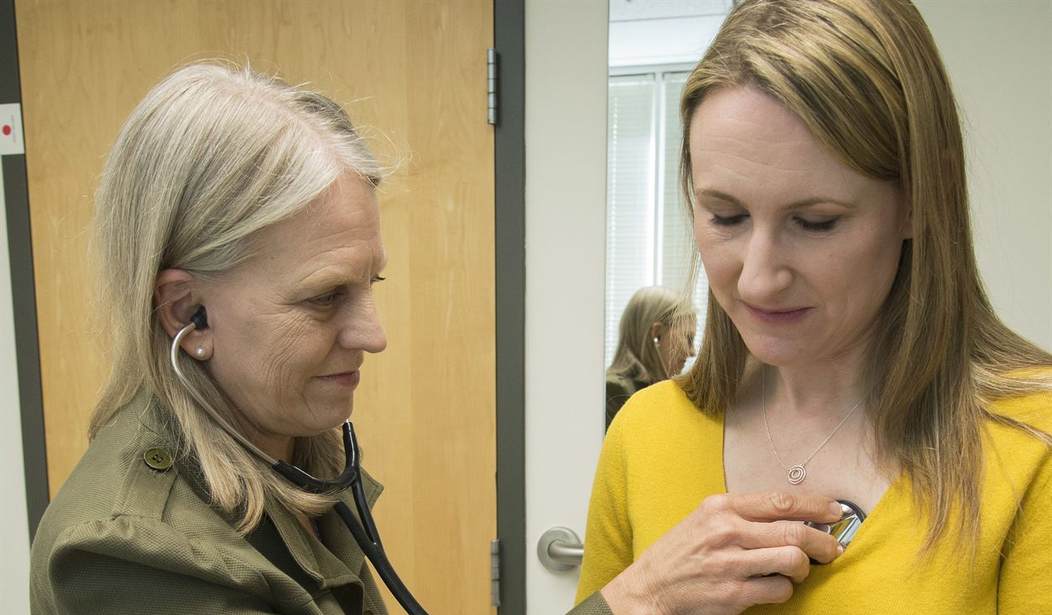Health care costs are rising throughout America and lawmakers across the country are looking for ways to ease the burden on patients while offering them more health care options. To counter the rising costs of health care and expand health care freedom, South Carolina legislators recently introduced HB 4169.
A recent report from United Health Group found 13 percent of American patients live in a county with a shortage of primary care physicians. One effective approach to address the shortage of primary care physicians is direct primary agreements.
Direct primary care (DPC) offers an alternative to the current health insurance system by allowing patients to engage in membership agreements with primary care doctors that do not involve third-party payers, such as health insurance companies.
This is especially important because the U.S. health system has huge access disparities between rural and urban areas. Rural patients are seven times more likely than urban patients to have a difficult time obtaining needed health care. Evidence shows that higher rates of poor health outcomes apply to rural populations in part because of this disparity.
Similarly, rural patients have higher rates of the five leading causes of death (heart disease, cancer, unintentional injury, chronic lower respiratory disease, and stroke) than their urban counterparts.
With cost and accessibility acting as two major barriers to quality care for patients, there is a potential solution to this massive problem: Direct primary care.
The DPC approach, unlike the overly burdensome current system, allows doctors to spend more time with patients instead of filling out paperwork to submit to a third-party payer. And anyone who has been to a doctor’s office in the past few years can attest to the insane amount of time doctors spend filling out mountains of paperwork.
One of the advantages of DPC agreements as opposed to the current health system is that it allows doctors to charge a membership fee for primary care services ranging from $50 to $100 per month for routine health services.
The substantial cost benefits of DPC couldn’t be clearer. According to a study in the American Journal of Managed Care, DPC patients are 52 percent less likely to use services at an expensive hospital than at a traditional private practice.
What’s more, under a DPC model, medical practice overhead can be reduced by as much as 40 percent. This is important because these savings are often passed onto the patients.
Currently, 32 states have approved DPC and 12 states have pending pilot programs that would expand DPC to Medicaid. More than a quarter of a million Americans are using DPC to access quality health care. According to the organization called Direct Primary Care Frontier, the number of DPC practices has increased from only a handful in the early 2000s to more than 900 as of 2018.
One obstacle to DPC expansion is the quasi-socialist health care system that is filled with corporate cronyism and government overregulation.
Fortunately, the South Carolina Legislature is addressing this issue and introduced legislation that would codify DPC agreements into law. This bill would define DPC and not constitute it as health insurance. By differentiating DPC and health insurance, doctors would be able to continue to offer monthly membership fees in exchange for primary care services.
DPC also removes layers of government red tape and cuts out the health insurance middlemen.
Furthermore, DPC offers more flexible hours for patients to schedule appointments. DPC offers far more convenient care for most Americans, who find it difficult to schedule appointments within traditional health care facility hours.
In closing, DPC offers a patient-centered approach that is desperately needed in South Carolina. There is no question that government intervention is the greatest roadblock to medical innovation and expansion. DPC addresses issues related to cost, accessibility, and the nation’s primary care shortage. Giving patients more options and freedom of choice when it comes to their health care is the right move for the Palmetto State.
Christina Herrin ([email protected]) is the government relations manager at The Heartland Institute, a nonpartisan, free-market think-tank headquartered in Arlington Heights, Ill.












Join the conversation as a VIP Member